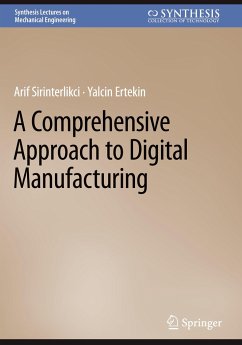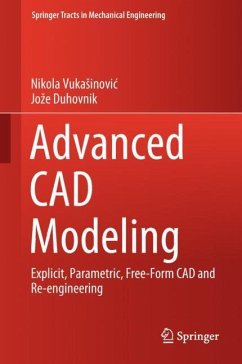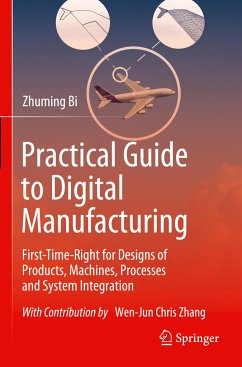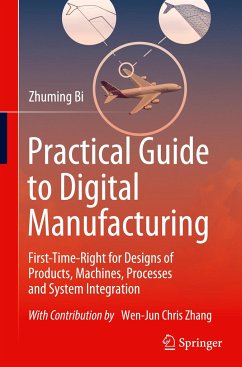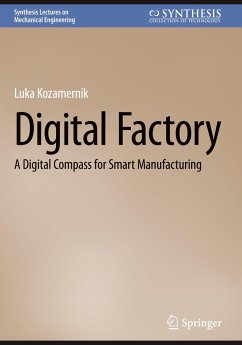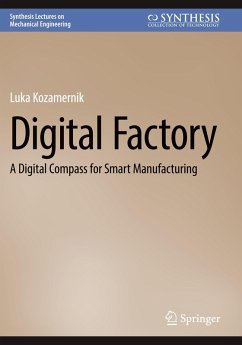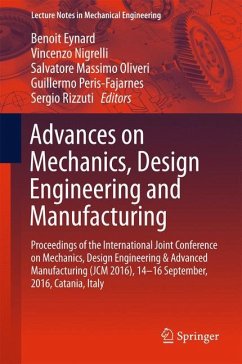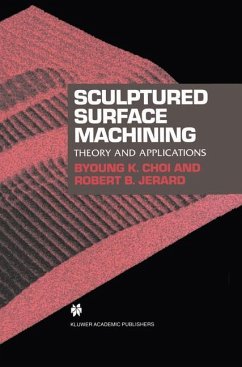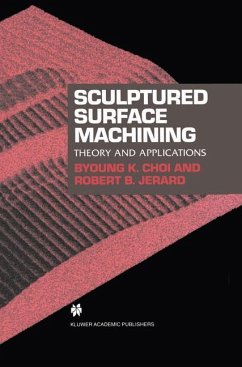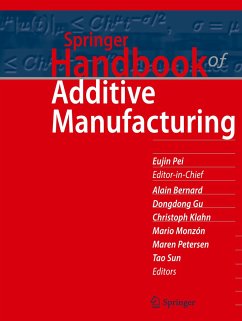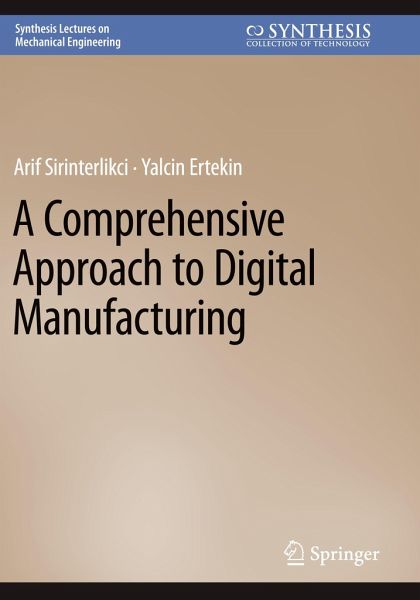
A Comprehensive Approach to Digital Manufacturing
Versandkostenfrei!
Versandfertig in 6-10 Tagen
46,99 €
inkl. MwSt.
Weitere Ausgaben:

PAYBACK Punkte
23 °P sammeln!
This book draws a comprehensive approach to digital manufacturing through computer-aided design (CAD) and reverse engineering content complemented by basic CNC machining and computer-aided manufacturing (CAM), 3D printing, and additive manufacturing (AM) knowledge. The reader is exposed to a variety of subjects including the history, development, and future of digital manufacturing, a comprehensive look at 3D printing and AM, a comparative study between 3D printing and AM and CNC machining, and computer-aided engineering (CAE) along with 3D scanning. Applications of 3D printing and AM are pres...
This book draws a comprehensive approach to digital manufacturing through computer-aided design (CAD) and reverse engineering content complemented by basic CNC machining and computer-aided manufacturing (CAM), 3D printing, and additive manufacturing (AM) knowledge. The reader is exposed to a variety of subjects including the history, development, and future of digital manufacturing, a comprehensive look at 3D printing and AM, a comparative study between 3D printing and AM and CNC machining, and computer-aided engineering (CAE) along with 3D scanning. Applications of 3D printing and AM are presented as well as multiple special topics including design for 3D printing and AM (DfAM), costing, sustainability, environmental, safety, and health (EHS) issues. Contemporary subjects such as bio-printing, intellectual property (IP) and engineering ethics, virtual prototyping including augmented, virtual, and mixed reality (AR/VR/MR), and industrial Internet of Things (IIoT) are also covered.
Each chapter comes with in-practice exercises and end-of-chapter questions, which can be used as home-works as well as hands-on or software-based laboratory activities. End-of-chapter questions are of three types mainly: review questions which can be answered by reviewing each chapter, research questions which need to be answered by conducting literature reviews and additional research, and discussion questions. In addition, some of the chapters include relevant problems or challenges which may require additional hands-on efforts. Most of the hands-on and practical content is driven by the authors' previous experiences. The authors also encourage readers to help improve this book and its exercises by contacting them.
Each chapter comes with in-practice exercises and end-of-chapter questions, which can be used as home-works as well as hands-on or software-based laboratory activities. End-of-chapter questions are of three types mainly: review questions which can be answered by reviewing each chapter, research questions which need to be answered by conducting literature reviews and additional research, and discussion questions. In addition, some of the chapters include relevant problems or challenges which may require additional hands-on efforts. Most of the hands-on and practical content is driven by the authors' previous experiences. The authors also encourage readers to help improve this book and its exercises by contacting them.



